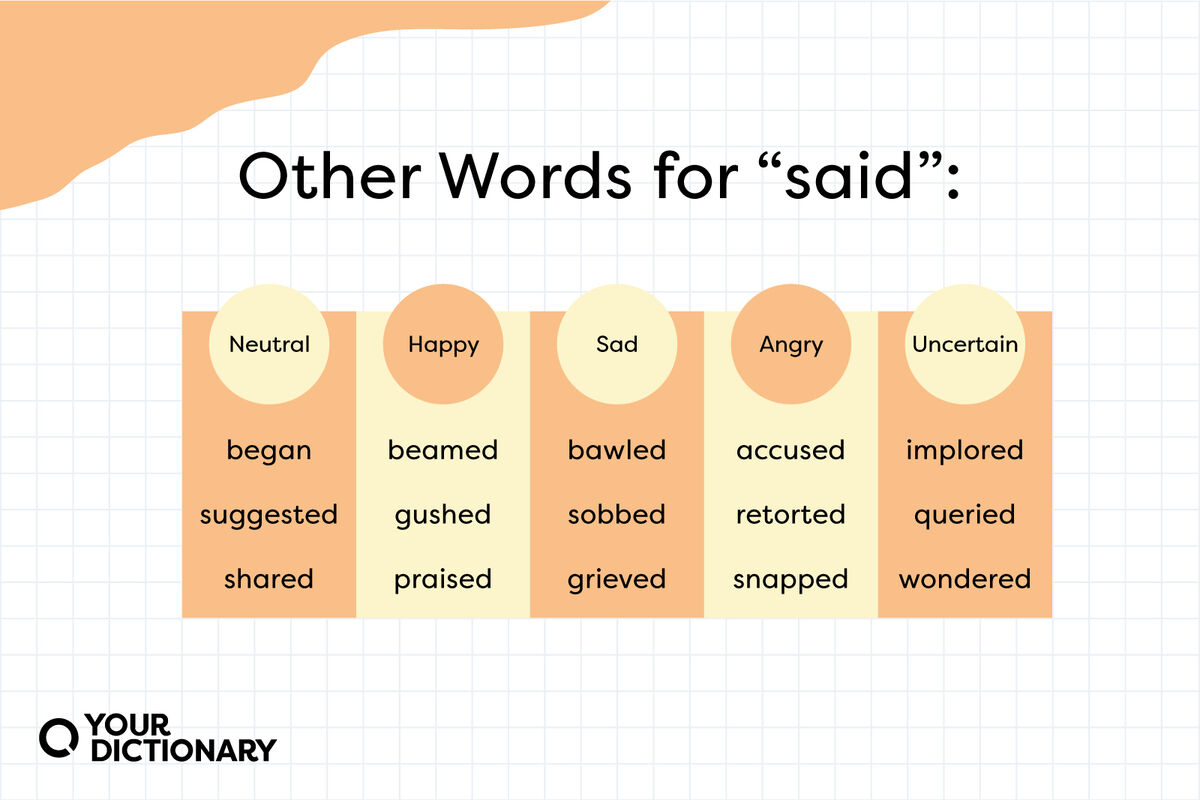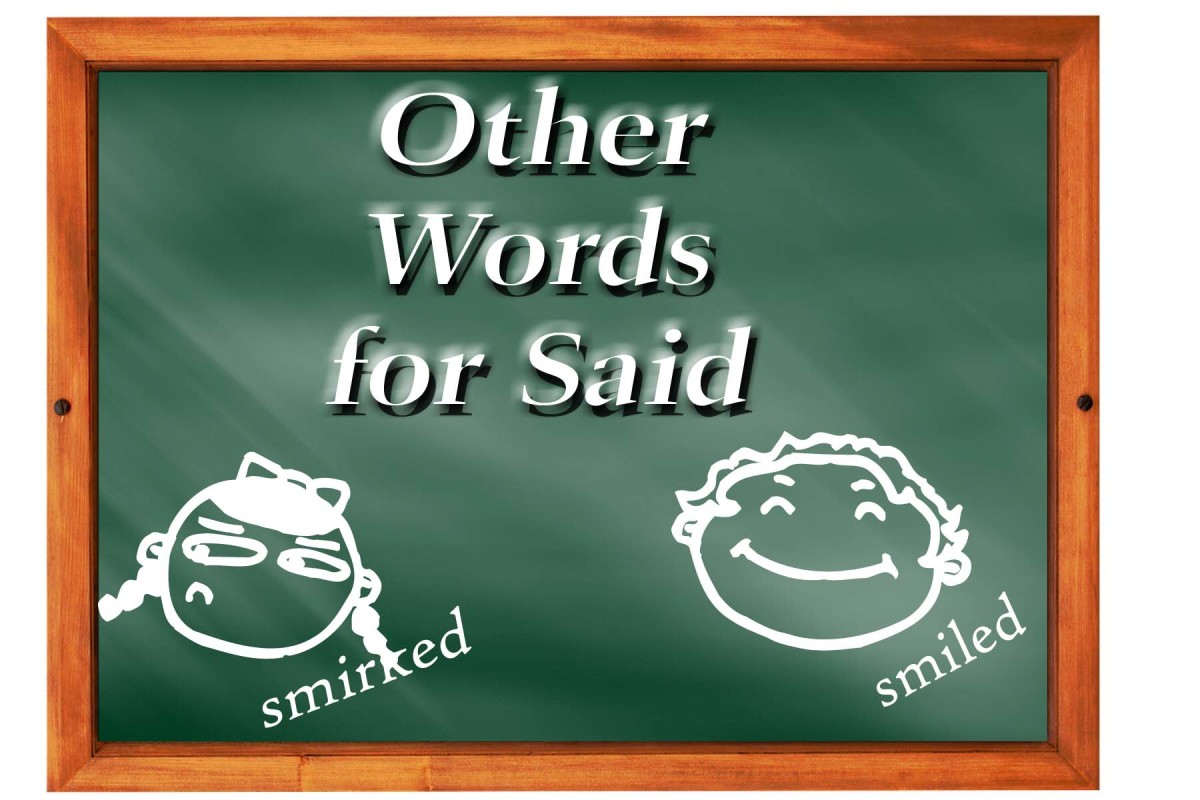Hey there, language enthusiasts! Have you ever wondered why words that are said different can mean the same thing? Language is one of the most dynamic and ever-evolving aspects of human communication. It’s like a living organism that adapts to different cultures, regions, and even individual quirks. Whether it’s slang, dialects, or regional variations, words that are said different play a crucial role in shaping how we interact with each other.
Picture this: You're traveling to a new country or even a different state within your own nation, and suddenly, the way people speak feels like a whole new world. They're saying words that are said different, yet they still convey the same meaning. It’s mind-blowing, isn’t it? Let’s dive into this linguistic puzzle and explore why and how it happens.
As we journey through the world of words that are said different, we’ll uncover fascinating insights into how language evolves, adapts, and thrives in diverse environments. So, buckle up and get ready for a ride through the colorful world of linguistic variations!
Read also:Josie Canseco Height The Real Deal Behind The Stats And More
What Are Words That Are Said Different?
Let’s start with the basics. Words that are said different refer to variations in pronunciation, spelling, or even meaning across different regions, cultures, or social groups. For instance, the word "color" is spelled "colour" in British English, while Americans prefer the simpler "color." These variations can be subtle or significant, depending on the context.
Language is not just about words; it’s about how we use them. Words that are said different often reflect the unique cultural and historical influences of a particular region. For example, in the United States, a carbonated drink might be called "soda," "pop," or "coke," depending on where you are. Crazy, right?
Why Do Words That Are Said Different Exist?
The existence of words that are said different can be attributed to several factors:
- Geographical separation: Different regions develop their own dialects and accents over time, leading to variations in how words are pronounced or used.
- Historical influences: Colonization, migration, and trade have all contributed to the blending of languages, resulting in new words or variations of existing ones.
- Cultural diversity: Language reflects the culture of its speakers. As cultures evolve, so does the language they use.
These factors create a rich tapestry of linguistic diversity, making the world of words that are said different a fascinating area of study.
Common Examples of Words That Are Said Different
Let’s take a closer look at some common examples of words that are said different. These examples will give you a clearer picture of how language varies across different regions and cultures.
1. British vs. American English
One of the most well-known examples of words that are said different is the difference between British and American English. Here are a few examples:
Read also:Unlocking The Mystery What You Need To Know About Warri Nigeria Postal Code
- Lift vs. Elevator: In the UK, you ride a "lift," while in the US, it’s an "elevator."
- Lorry vs. Truck: A large vehicle used for transporting goods is called a "lorry" in the UK and a "truck" in the US.
- Biscuit vs. Cookie: A sweet baked treat is a "biscuit" in the UK and a "cookie" in the US.
2. Regional Variations in the United States
Even within the United States, there are significant regional variations in how words are said. Here are a few examples:
- Soda vs. Pop vs. Coke: Depending on where you are, a carbonated drink might be called "soda," "pop," or even "coke."
- Sub vs. Hoagie vs. Grinder: A long sandwich is called a "sub" in some areas, a "hoagie" in others, and a "grinder" in still others.
How Do Words That Are Said Different Impact Communication?
While words that are said different add richness and diversity to language, they can also create barriers to effective communication. Misunderstandings can arise when people from different regions or cultures use the same word in different ways. For example, imagine asking for a "biscuit" in the US and being handed a sweet cookie instead of a savory bread roll!
However, with a little bit of patience and understanding, these differences can be overcome. By embracing the diversity of language, we can learn to appreciate the unique ways in which people express themselves.
Strategies for Overcoming Communication Barriers
Here are a few strategies for overcoming communication barriers caused by words that are said different:
- Ask for clarification: If you’re unsure what someone means, don’t hesitate to ask for clarification.
- Be open-minded: Embrace the diversity of language and be willing to learn new words and expressions.
- Use context clues: Pay attention to the context in which a word is used to help you understand its meaning.
The Role of Technology in Bridging Language Gaps
Technology has played a significant role in bridging the gaps between words that are said different. Tools like translation apps, online dictionaries, and language-learning platforms have made it easier than ever to understand and communicate with people from different linguistic backgrounds.
For example, if you’re traveling to a country where you don’t speak the language, you can use a translation app to help you communicate with locals. Similarly, if you’re learning a new language, online resources can provide you with valuable insights into how words are said different in various regions.
Popular Language Tools
Here are a few popular language tools that can help you navigate the world of words that are said different:
- Google Translate: A widely used translation tool that supports over 100 languages.
- Duolingo: A language-learning platform that offers courses in dozens of languages.
- Merriam-Webster Dictionary: A trusted online dictionary that provides definitions and pronunciation guides for English words.
Words That Are Said Different in Pop Culture
Pop culture has also embraced the concept of words that are said different, often using it as a source of humor or intrigue. Movies, TV shows, and books frequently highlight the differences in language and dialects to create memorable characters and storylines.
For example, the movie "My Fair Lady" explores the idea of transforming a Cockney accent into refined British English. Similarly, the TV show "The Office" (US version) often highlights the cultural and linguistic differences between the British and American versions of the show.
How Pop Culture Shapes Our Perception of Language
Pop culture has a significant impact on how we perceive language and its variations. By showcasing the diversity of language, pop culture helps us appreciate the richness of different dialects and accents. It also encourages us to embrace our own linguistic quirks and celebrate the uniqueness of our own voices.
The Future of Words That Are Said Different
As the world becomes increasingly interconnected, the future of words that are said different looks bright. Advances in technology and communication will continue to break down barriers and bring people from different linguistic backgrounds closer together.
However, it’s important to remember that language is a living, breathing entity that will continue to evolve over time. As new words and expressions emerge, we must remain open-minded and adaptable to ensure that we can communicate effectively with people from all walks of life.
Predictions for the Future of Language
Here are a few predictions for the future of words that are said different:
- Increased globalization: As the world becomes more interconnected, we can expect to see more blending of languages and dialects.
- Advances in technology: New technologies will continue to enhance our ability to communicate across linguistic barriers.
- Greater appreciation for diversity: As people become more aware of the richness of linguistic diversity, we can expect to see a greater appreciation for different dialects and accents.
Conclusion: Celebrating the Diversity of Words That Are Said Different
In conclusion, words that are said different play a vital role in shaping the way we communicate and interact with each other. From regional dialects to cultural influences, the diversity of language adds depth and richness to our lives.
As we’ve explored in this article, the world of words that are said different is both fascinating and complex. By embracing the diversity of language, we can learn to appreciate the unique ways in which people express themselves and communicate with each other.
So, the next time you encounter a word that’s said different, don’t be afraid to embrace it! Who knows, you might just learn something new and exciting. And if you enjoyed this article, don’t forget to leave a comment, share it with your friends, or check out some of our other articles on the wonders of language.
Table of Contents
- Words That Are Said Different: A Dive Into the Fascinating World of Linguistic Variations
- What Are Words That Are Said Different?
- Why Do Words That Are Said Different Exist?
- Common Examples of Words That Are Said Different
- How Do Words That Are Said Different Impact Communication?
- The Role of Technology in Bridging Language Gaps
- Words That Are Said Different in Pop Culture
- The Future of Words That Are Said Different
- Conclusion: Celebrating the Diversity of Words That Are Said Different


